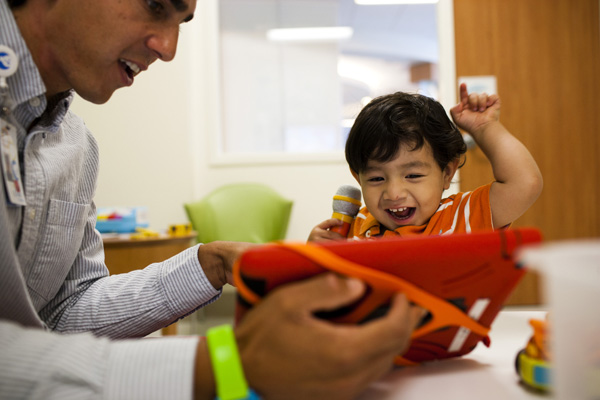Although most school-aged children can easily speak and express their feelings and emotions, dealing with illness, tests, treatments and hospitalization can be extremely overwhelming. Medical play allows school-aged children to express their feelings and emotions and learn the vocabulary they encounter throughout treatment. Having a greater understanding of their treatments, bodies and the hospital allows them to feel more secure with their experiences.
School-aged children can engage in medical play through art, role playing and teaching, active play, and through books.
- Art is a wonderful way for school-aged children to express their feelings about their treatments and become familiar with handling medical equipment like cotton balls and bandages by making collages or sculptures.
- While explaining information to children is important, what is also important is a child's ability to convey the information back to someone else. Role playing with medical equipment or a play doctor's kit allows children to be able to process what they have learned and then find ways to verbalize their understanding. Children often pretend to be a child life specialist, nurse or doctor explaining or "teaching" their dolls, stuffed animals, family members or friends what to expect in the hospital or with a procedure or treatment. The ability to teach what they have learned to a friend, or even a stuffed animal, can help the child feel more like an expert and more in control.
- Children can engage with medical equipment in "active play," thus making the equipment less about painful procedures and more about fun. Children can balance cotton balls and other small items on tongue depressors or can use syringes for squirting water or blowing cotton balls across a flat surface.
- Reading books about health care experiences can provide school-aged children with more information and vocabulary related to their hospital experience or illness, thus providing insight on what other children have experienced.














